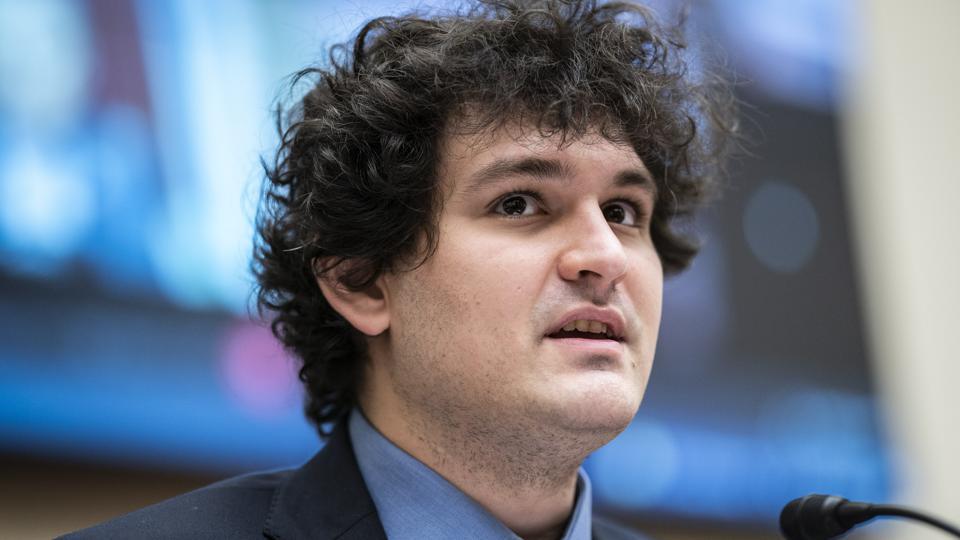Sam Bankman-Fried, the founder and former CEO of FTX, the cryptocurrency exchange that collapsed in 2023 amid allegations of fraud and money laundering, has been cleared of all charges in his second trial. The jury in the U.S. District Court for the Southern District of New York found him not guilty of five counts of campaign finance law violations, obstruction of justice, and perjury on Friday.
Bankman-Fried, 31, was accused of illegally funneling millions of dollars to political candidates and committees, including the presidential campaign of Andrew Yang, in exchange for favorable policies and regulations for the crypto industry. He was also charged with lying to federal investigators and tampering with evidence and witnesses.
The second trial came after Bankman-Fried was convicted of 10 counts of fraud, conspiracy, and money laundering in his first trial in November 2023. He was found guilty of stealing customer funds from FTX to cover loans taken out by Alameda Research, FTX’s affiliated crypto hedge fund. He used the funds to invest in other companies, donate to political campaigns, and use them for his own benefit. He is currently awaiting sentencing for the first trial, which could result in up to 115 years in prison.
Bankman-Fried’s lawyers argued that he was a visionary entrepreneur who was trying to innovate and democratize the crypto space, and that he did not intend to defraud anyone or break any laws. They claimed that he was unaware of the source and destination of the funds he received and donated, and that he cooperated with the authorities and told the truth.
The prosecution, however, portrayed him as a greedy and dishonest schemer who abused his power and influence to enrich himself and his associates at the expense of his customers and the public. They presented evidence and testimony from Bankman-Fried’s former business partners, who had pleaded guilty and cooperated with the government, as well as bank records, emails, and phone calls.
The jury deliberated for three days before reaching a verdict. The judge thanked the jurors for their service and dismissed them. Bankman-Fried hugged his lawyers and family members, who were present in the courtroom. He declined to comment to the media as he left the courthouse.
The verdict is a rare victory for Bankman-Fried, who has been facing a barrage of legal troubles since FTX’s collapse. In addition to the criminal charges, he is also facing civil lawsuits from customers, investors, regulators, and creditors, who are seeking billions of dollars in damages and restitution. He has also been banned from the crypto industry and had his assets frozen by the authorities.
FTX was once one of the largest and most popular crypto exchanges in the world, with over 10 million users and a valuation of $18 billion. It offered a variety of products and services, including spot and futures trading, decentralized finance, non-fungible tokens, and social trading. It was also known for its philanthropic and social initiatives, such as donating to environmental and humanitarian causes, sponsoring sports teams and events, and supporting emerging markets and communities.
However, FTX’s downfall began in January 2023, when the U.S. Securities and Exchange Commission (SEC) filed a lawsuit against FTX and Alameda Research, accusing them of operating an unregistered securities exchange and offering illegal derivatives products. The SEC also alleged that FTX and Alameda Research manipulated the prices of crypto assets and engaged in insider trading and market abuse.
The SEC’s lawsuit triggered a series of investigations and actions by other regulators and law enforcement agencies around the world, including the U.S. Department of Justice, the Federal Bureau of Investigation, the Internal Revenue Service, the Commodity Futures Trading Commission, the Financial Crimes Enforcement Network, and the New York Attorney General’s Office. Several countries, such as China, India, Japan, and the UK, also banned or restricted FTX’s operations and access.
As a result of the regulatory crackdown, FTX’s liquidity and reputation suffered, leading to a mass exodus of customers and partners. FTX’s platform experienced technical glitches, security breaches, and customer service issues, causing further losses and complaints. FTX’s creditors and lenders also demanded repayment of their loans, which FTX was unable to fulfill.
In March 2023, FTX filed for bankruptcy protection, citing insolvency and legal liabilities. FTX’s bankruptcy trustee, appointed by the court, took over the management and administration of FTX’s assets and liabilities. The trustee is currently working on a plan to distribute FTX’s remaining funds and assets to its creditors and customers, who have filed claims totaling over $50 billion.
The FTX saga has been one of the biggest scandals and disasters in the history of the crypto industry, and has raised questions and concerns about the regulation, security, and ethics of the crypto space. It has also sparked debates and discussions about the role and impact of crypto in the society, economy, and politics. The FTX case is likely to have lasting implications and ramifications for the future of crypto and its stakeholders.






